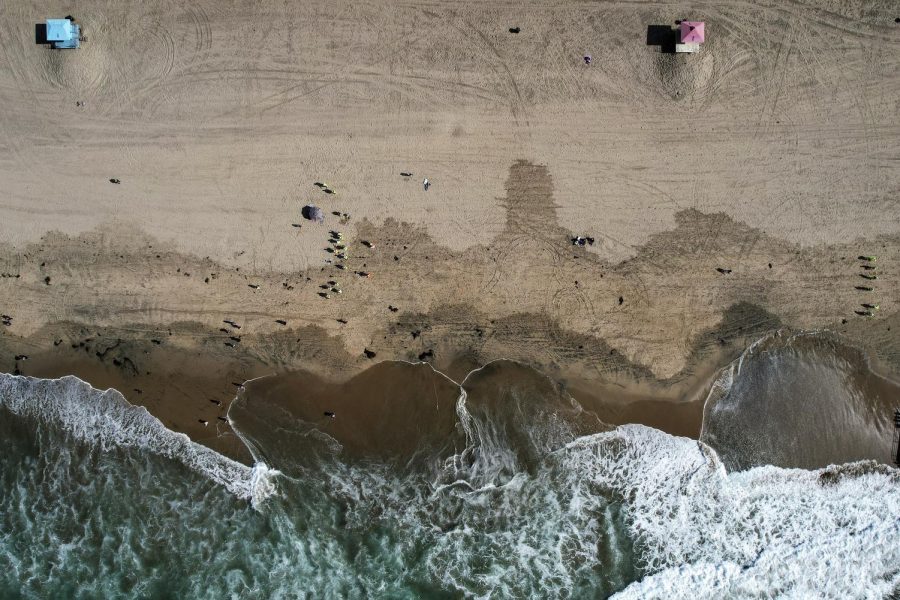The next Deepwater Horizon? Not exactly.
(AP Photo/Ringo H.W. Chiu, File)
This Monday, Oct. 11, 2021, aerial file photo taken with a drone, shows beachgoers as workers in protective suits continue to clean the contaminated beach in Huntington Beach, Calif.
Oct 27, 2021
The oil spill off of Southern California earlier this month sparked a great deal of panic in its early days, but it appears that the short-term effects are not as serious as initially thought. However, there is still potential for harm in the long run, with effects on both wildlife and humans in the area of the spill.
According to the U.S. Coast Guard, the spill appears to be close to 25,000 gallons of crude oil—one-fifth of what was originally expected. The most likely cause is a ship anchor striking the underwater pipeline connecting an oil platform owned by Amplify Energy Corp to onshore facilities; this weakened the pipeline to the point that it ruptured several months later, according to ABC News.
Immediately after the pipeline leak was discovered and the oil supply shut off, local beaches were shut down but reopened soon afterwards. Some tar balls and deceased marine life were recovered from the beaches, but not in catastrophic numbers, according to CNN.
The timing of the spill brought a silver lining. According to NPR, it occurred just before migrating birds arrived on the coast and just after nesting season had ended. This meant fewer avian species were present for the immediate spill, and since much of it has been cleaned up by now, the effect on seabirds is significantly reduced compared to the Deepwater Horizon spill of 2010.
However, all of this is in the short term. There are consequences to be had further down the line. According to James Watling, professor of biology at John Carroll University, unknown effects might be had on deepwater undersea communities, far away from the coastal environments. Additionally, it is possible that longer-lived wildlife such as mammals and turtles in the area might suffer from health issues for years afterward. However, since the coastal areas were sealed off via physical barriers, the long-term health of the fishing industry in that area will be stable. It will take a momentary hit, but it will return to normal fairly soon.
Fortunately, it seems that another Deepwater Horizon has been prevented due to sealing off estuaries and rapidly cleaning up the spilled oil. Nevertheless, avoid eating any fish from the area of Southern California for a while.













Carrie Buchanan • Oct 30, 2021 at 1:31 am
Thanks for this story, Roberto. I’m glad things were not as bad as originally expected. I’m also really glad to see you writing for The Carroll News!